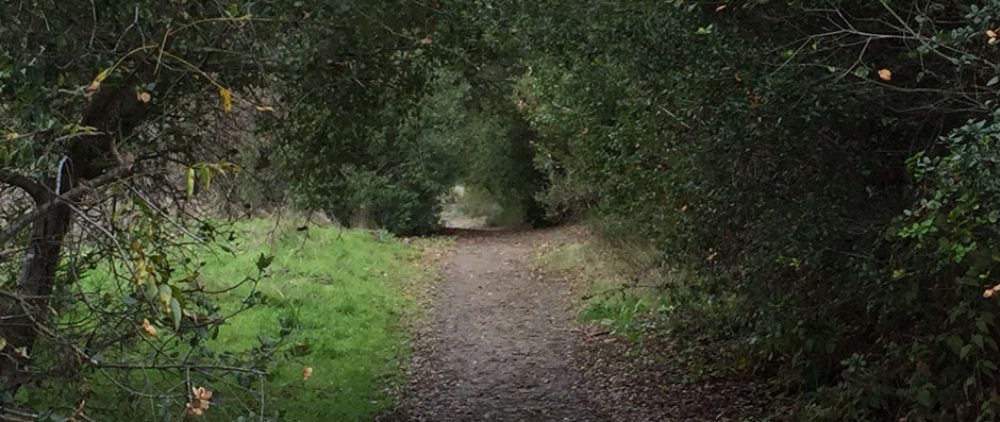I always laugh at certain Mel Brooks jokes, and “I, state your name,” is one of them. This factoid seems like a good intro to this post, which is based on today’s WordPress Daily Writing Prompt, “Say Your Name.” Here is the full text of the writing challenge:
Write about your first name: Are you named after someone or something? Are there any stories or associations attached to it? If you had the choice, would you rename yourself?
To answer the last question first: when I was a kid, I longed to be Joe, or Billy, or Bob (I was a Yankee, so Billy Bob wasn’t an option). Somewhere along the line, Morgan began to fit. I think what really cemented it was my years in the hi-tech world. Before I left, it was so diverse that if you include international teleconferences, in a given month or even week, I might interact with people from China, Japan, India, Pakistan, Italy, Israel, England, and Arizona. I learned that there is no such thing as a “common” name.
I was named after my mother’s father, and this is where family history takes a turn toward the novels of Thomas Hardy – a single tragic event that rippled through many lives.
Grandfather Morgan was the son of a Dutch immagrant who became a paper tycoon. Not one to rest on family privilege, at the age of 17 he lied about his age to enlist in the war to end all wars. Fortunately, WWI ended before he could get “over there.”
Back home, Morgan married my grandmother, June, a schoolteacher. The couple moved to Richmond, Virginia to manage a paper mill. My mother was born there in 1923.
In the 20’s, baseball fever was rampant, and Morgan pitched for the company team. Sometime around 1928, a line drive caught him in the groin. It hurts to even think about, and after a series of operations, he developed tuberculosis of the bone. The family moved west, first to Tucson, then Prescott, Arizona, and finally to Albuquerque, where Morgan died in 1930.
My grandmother nursed him during that time and said that on his last night, he was joyous and smiling and said, “The worst is over now, I can feel it.”
My grandmother became quite the cowgirl. Most of the roads were single lane, and the rattlesnakes could easily grow to six or seven feet long. Coming upon them, Grandmother June would run over them with the model A – repeatedly – then climb out to cut off the rattles. My mother had a snake phobia and was frightened even of rattles in the trunk.
Another time, when she was six, my mother climbed a rock spire in Prescott known as, “Top Rock.” Once on top, she set up a wail, crying that she couldn’t get down. Without a fire department to come to the rescue, June put on her boots, hiked up her skirt, and learned what she had to know about rock climbing on the fly.
In the end, the death of my grandfather, Morgan, affected everyone badly. Grandmother June developed TB and spent several years in a sanatorium in Colorado. Though she recovered, the disease affected her inner ear balance, so from her mid-30’s on, she had to use a cane. She saw a psychiatrist for depression, something I never learned until she was gone, for at the time, it carried a stigma.
My grandmother believed there is only one true love in a person’s life. Though men courted her well into middle age, she refused all offers, in order to “be true” to Morgan. At the end of her life, when she lived with us, her depression returned. She believed her life-long loneliness was a judgement from God. This compassionate and adventurous woman died believing she must have sinned in some way that lay beyond atonement.
Understandably, my mother suffered from depression too. Sometimes it manifested as a “sense of impending doom.” If a picnic was planned, she’d be the one to look at the morning sky and say, “I hope it doesn’t rain.” Both of these are tendencies I have to battle.
I never knew either grandfather. Though there were uncles to teach me essentials like how to play poker, I know the lack of “wise old men” in the family contributed to what Robert Bly calls “Hunger for the father.” Perhaps this helped nudge me toward the arts, where we learn that hunger can work like the grain of sand in the oyster that leads to the forming of pearls.
Sometimes I think about ancestor worship – not in the literal sense – yet some primitive part of me seems to believe that what we do now can affect those who came before. That the effort to live well may carry some kind of redemption. My grandfather Morgan’s story is filled with life unlived. His name is a good one to carry – it reminds me that what I do matters.
The first time I went to a Zen sesshin, we ended each day of meditation by reciting this “Evening Caution:”
I beg to urge you, everyone:
each of us must be completely awake:
never neglectful, never indulgent;
life-and-death is a grave matter,
all things pass quickly away;
By the time I got there, I already knew that. These truths lie embedded in family history.


Wonderful and entrancing. Thanks for sharing.
LikeLike
Thanks for reading and for your comment.
LikeLike